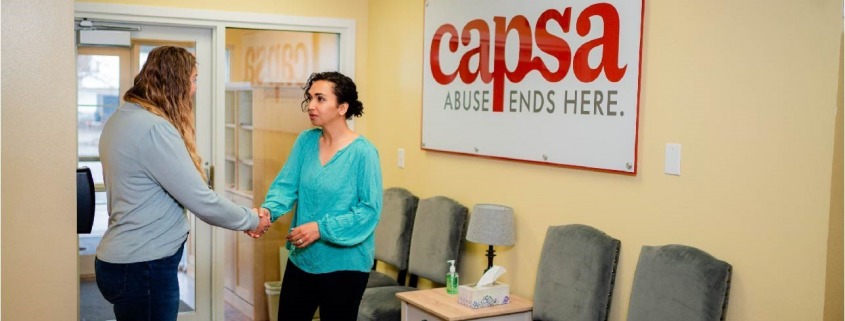What Does CAPSA Stand For?
CAPSA stands for Citizens Against Physical and Sexual Abuse
In 1976, two high-profile rape cases occurred on Utah State University’s campus. This troubled many community members, and deciding to act, they created the Cache Valley Rape Crisis Team. The team was a hotline and calls were directed toward the University’s Women’s Center.
In 1979, Utah passed a spousal abuse act, which made domestic violence illegal. With this legislation, both the need and funding for domestic violence shelters increased. The response team changed its name to Citizens Against Physical & Sexual Abuse, and community members began housing individuals within their own homes.
From there CAPSA has grown into a 34-bed domestic violence shelter with caseworkers and a therapy program. We also have a housing program, child advocacy, and an education department dedicated to educating youth in hopes to prevent future violence. CAPSA is a team of some of the best people who have a passion for serving our community and helping people heal from abuse.
A few of our team members share what CAPSA means to them
Brenna, Children and Youth Services Manager
“CAPSA gives a sense of hope. I love coming to work every day knowing that I can make a difference in the lives of children and youth. Their voices deserve to be heard and are often overlooked. I am happy to build relationships with our young generation in hopes to set them up for success in every aspect of their life.”
Victoria, Diversity Caseworker
“I think CAPSA for me means a place of healing and hope no matter where you come from or your immigration status, everyone is welcome here to heal and move forward.”
Maddie, Community Engagement Coordinator
“To me, CAPSA represents a true sense of hope in the face of hardship. In a world where we’re all constantly inundated with horrifying headlines and shockingly sad stories, it’s really easy to start feeling overwhelmed and to wonder where to even begin helping everyone who needs it. It’s really nice to work at a place like CAPSA, where helping survivors of abuse is the sole focus, but a major emphasis is also placed on self-care. We know that taking care of ourselves is critical to doing the work we do as successfully as possible.”

